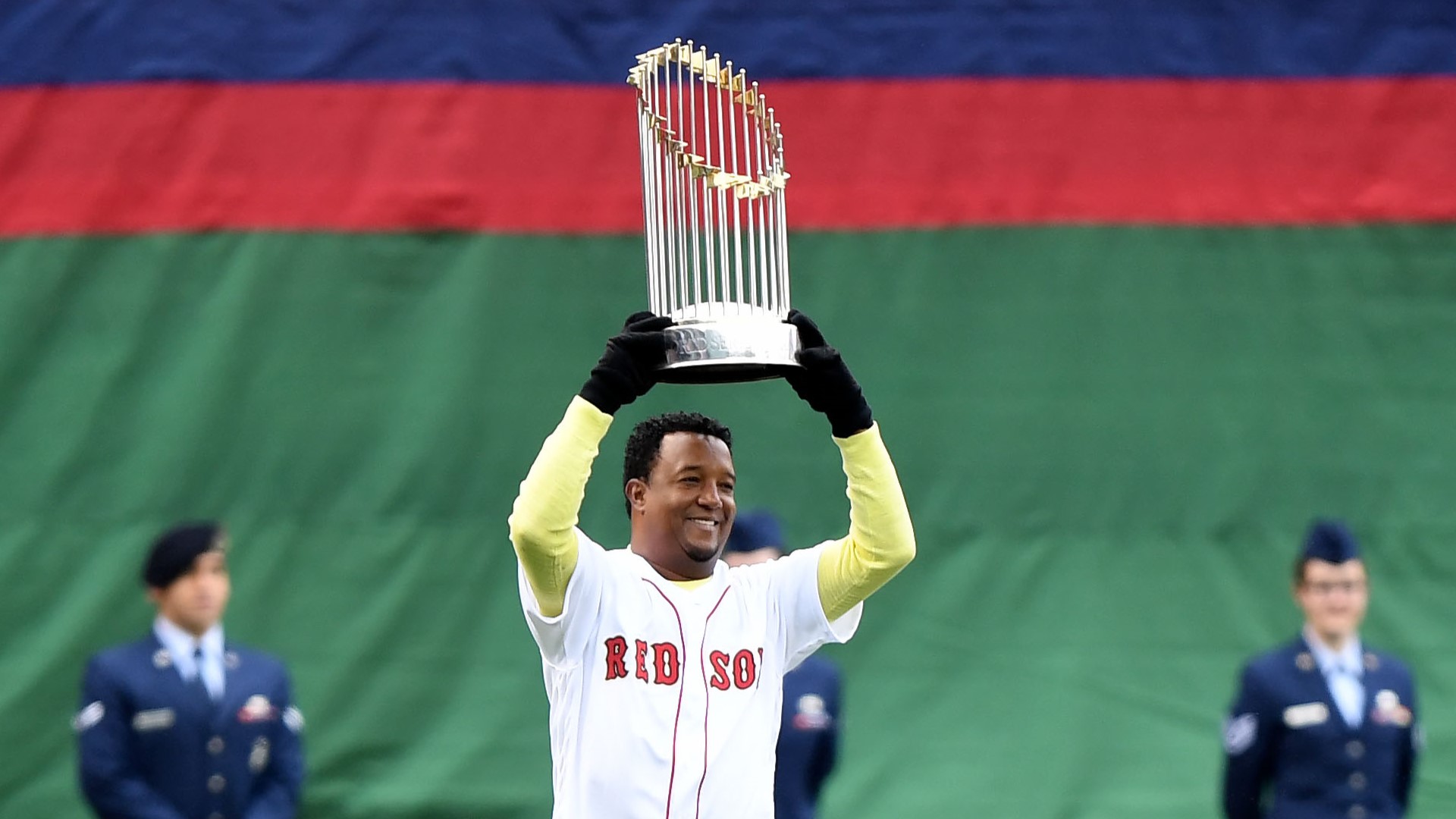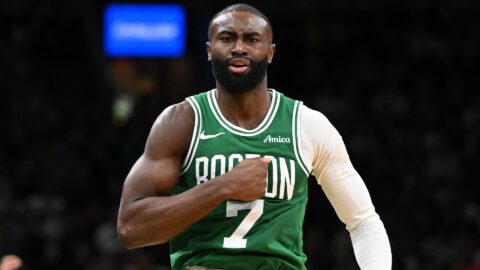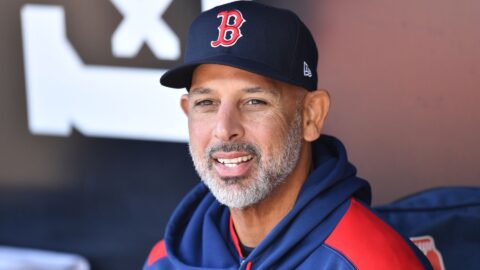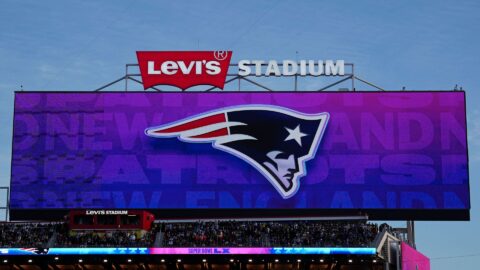For decades, the question of who was the top dog in the Boston sporting universe was hardly worth asking.
The Red Sox, for whatever reason, held a stranglehold on the hearts and minds of the region. Pockets of people gave diehard status to the Patriots, Bruins and Celtics, but the term "Red Sox Nation" was not a misnomer. Even through a famously epic championship drought, and season after season of heartbreak, Red Sox fans couldn't quit on their team. We kept coming back for more.
The strength of Red Sox fandom benefited from many things, including the fact that baseball is the most American of games and New England is America's birthplace. Red Sox baseball offered an historical connection to our fathers and grandfathers. We all cheered for the same team. We suffered heartbreak when the Red Sox fell short. We had a common thread. And then, something strange happened. They won.
The Red Sox' 2004 World Series win was cathartic for generations of fans who'd watched their beloved team come so close, only to be turned away yet again. It vanquished decades of baseball demons and validated years and years of undying support.
But it did something else too that many of us didn't see coming. It ushered in the era of the bandwagon fan. Suddenly, longtime Red Sox season-ticket holders were sharing the beer lines at Fenway with college kids from California claiming they'd always loved our "Sawx." The bleachers, instead of being filled with sheet metal workers from Southie, were packed with drunken frat boys more interested in getting in fights with opposing fans than keeping score.
And when the Red Sox won again in 2007, their popularity continued to grow. As with anything trendy, the backlash soon began.
The diehards haven't gone away, not by a long shot. But some of them have tired of shoving their way through crowds of sorority girls shrieking for Jacoby Ellsbury and have turned their attention to the other Boston teams. And for the first time in a very, very long time, there's an outpouring of affection for all four major teams.
The Patriots' 2001 Super Bowl run happened so fast — and took so many people by surprise — that there was almost no time for bandwagoners. Despite what people may tell you now about the faith they had in the team and its sixth-round draft pick replacement quarterback, the two-touchdown underdog Patriots shocked everyone by beating the St. Louis Rams' Greatest Show on Turf.
But 2001 was the last time the Patriots were able to fly under the radar. Tom Brady’s Super Bowl MVP performance vaulted him to the top of the A-list, both in NFL and celebrity status, and pretty soon, No. 12 jerseys could be seen on every street corner or cafe in New England.
When Aaron Boone's extra-inning home run broke our hearts yet again in the 2003 ALCS, the Patriots were there with their second Super Bowl win to salve our wounds.
The 2003 Super Bowl served as a turning point in the collective conscience of many New England fans. Here's a team we hadn't been paying a huge amount of attention to (at least when compared to the gallons of ink and tears spilled on the Red Sox), and they reward our fandom — repeatedly.
The Patriots were the new kings in town.
The Red Sox wrested back control in 2004 and held onto it during their World Series win in 2007, but the Patriots made a play for the region's affections with their historic undefeated, record-setting season in 2007. Were it not for David Tyree, Plaxico Burress and an elusive Eli Manning, Boston may have forever turned into a Patriots town first and foremost.
As it was, the Super Bowl loss left a deep and painful scar, and fans in need of solace and a remedy for their bruised pride turned to another of the Boston teams again showing promise, the Boston Celtics.
Back in the 1960s, the Celtics were an unstoppable juggernaut. Winning more than half of the NBA championships between 1957 and 1986, the Celtics had a firm hold on Boston fans' rooting interests. But as the fortunes of the Patriots and Red Sox began to improve, those of the Celtics started to derail, culminating with the tragic deaths of Len Bias and Reggie Lewis and the retirement of Larry Bird.
For a period from 1986 through 2007, the Celtics flirted with competitiveness at times and catastrophe at others. It wasn't until the 2007 run through the playoffs — featuring new acquisition Kevin Garnett – that the Celtics once again cemented themselves as powerhouses of the NBA, just in time to make us all feel better about the Patriots’ embarrassing Super Bowl loss.
However, one team that doesn't quite fit in with the making-up-for-the-other-club’s-losses theme is the Bruins. Boston's Black and Gold had their heyday in the years of Bobby Orr, winning Stanley Cups in 1969-70 and 1971-72. Since then, the Bruins have mostly been mired in mediocrity, with a resurgence the past few years.
Being one of the Original Six NHL franchises, the Bruins laid down roots early, and the roughneck, workmanlike play of the team and players like Orr, Cam Neely and Ray Bourque has long been a touchstone for the die-hard, blue-collar Bruins fans.
Lately, the team's young, hard-nosed crop of players — in addition to their recent success — has brought fans back to the Garden. Milan Lucic, Patrice Bergeron, Zdeno Chara and local favorite "Mahk Savahd" have filled the seats again, as the Bruins have gone on two straight somewhat improbable playoff runs. While the B’s may not be the top team in this town, their loyal fans from the days of Johnny Bucyk, Phil Esposito, Gerry Cheevers and the Big Bad Bruins have never gone away, and with new reason to cheer, they've come out in force. Boston may forever be seen as a Red Sox-first town, simply because the team holds the edge in history and longevity. And as a famously cursed franchise, they've long been the team of literary men as well, owing to volumes written about them.
Baseball also is a more pervasive sport than any of the others, with games nearly every day for nearly six months of the year. In Boston especially, you literally cannot escape the Red Sox.
Former baseball commissioner and Red Sox fan Bart Giamatti wrote of the sport of baseball, "It breaks your heart. It is designed to break your heart. The game begins in the spring, when everything else begins again, and it blossoms in the summer, filling the afternoons and evenings, and then as soon as the chill rains come, it stops and leaves you to face the fall alone."
But in Boston, without baseball, we're never alone. The Patriots, Celtics and Bruins make sure of it. As a region, it's not a bad problem to have.



